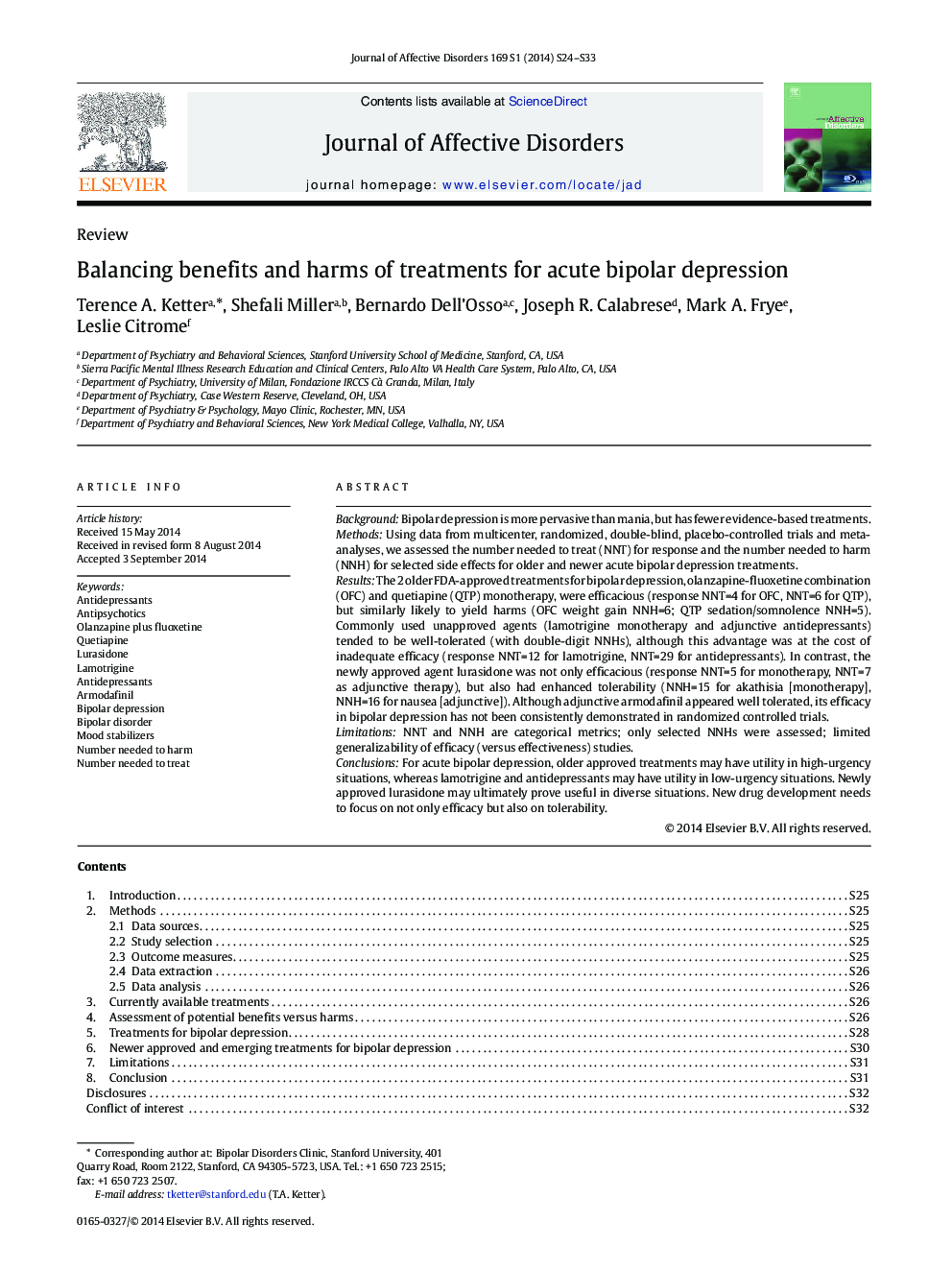| Article ID | Journal | Published Year | Pages | File Type |
|---|---|---|---|---|
| 4185975 | Journal of Affective Disorders | 2014 | 10 Pages |
BackgroundBipolar depression is more pervasive than mania, but has fewer evidence-based treatments.MethodsUsing data from multicenter, randomized, double-blind, placebo-controlled trials and meta-analyses, we assessed the number needed to treat (NNT) for response and the number needed to harm (NNH) for selected side effects for older and newer acute bipolar depression treatments.ResultsThe 2 older FDA-approved treatments for bipolar depression, olanzapine-fluoxetine combination (OFC) and quetiapine (QTP) monotherapy, were efficacious (response NNT=4 for OFC, NNT=6 for QTP), but similarly likely to yield harms (OFC weight gain NNH=6; QTP sedation/somnolence NNH=5). Commonly used unapproved agents (lamotrigine monotherapy and adjunctive antidepressants) tended to be well-tolerated (with double-digit NNHs), although this advantage was at the cost of inadequate efficacy (response NNT=12 for lamotrigine, NNT=29 for antidepressants). In contrast, the newly approved agent lurasidone was not only efficacious (response NNT=5 for monotherapy, NNT=7 as adjunctive therapy), but also had enhanced tolerability (NNH=15 for akathisia [monotherapy], NNH=16 for nausea [adjunctive]). Although adjunctive armodafinil appeared well tolerated, its efficacy in bipolar depression has not been consistently demonstrated in randomized controlled trials.LimitationsNNT and NNH are categorical metrics; only selected NNHs were assessed; limited generalizability of efficacy (versus effectiveness) studies.ConclusionFor acute bipolar depression, older approved treatments may have utility in high-urgency situations, whereas lamotrigine and antidepressants may have utility in low-urgency situations. Newly approved lurasidone may ultimately prove useful in diverse situations. New drug development needs to focus on not only efficacy but also on tolerability.
